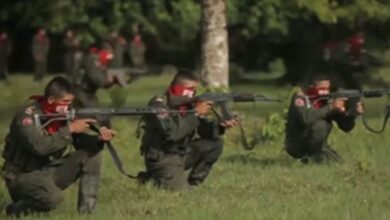Colombian Coffee Growers Champion Andean Bear Protection Brewing Conservation

In the verdant expanses of Colombia’s Andean forests, an unlikely alliance between coffee growers and conservationists is brewing a robust effort to save the endangered Andean bear. Known as the guardian of the forests and páramos, this species faces threats that could make it one of the first carnivorous animals to vanish, per the International Union for Conservation of Nature (IUCN). Yet, through innovative initiatives like ‘Café oso Andino,’ local farmers blend conservation with cultivation.
Preserving the Andean Bear in Colombia
In Colombia, the Andean bear, also affectionately known as the spectacled bear (Tremarctos ornatus), plays a crucial role in its ecosystem. Its foraging habits, which include knocking down shrubs and spreading seeds, are instrumental in the proliferation of various plant species, enriching the biodiversity of the Andean forests. Despite their ecological importance, these bears are classified as vulnerable, with their numbers dwindling due to rapid agricultural expansion, hunting, and habitat destruction for economic developments, including infrastructure projects like electric lines, pipelines, and roads.
The spectacled bear’s plight is not isolated, reflecting broader conservation challenges across Latin America, where biodiversity hotspots in countries like Ecuador, Peru, and Venezuela also grapple with similar pressures. These nations, sharing the majestic Andes and its unique biodiversity, face the daunting task of balancing development with conservation, a challenge magnified for species that roam across national borders and ecosystems.
In response, a group of coffee growers in Valle del Cauca, southwestern Colombia, inspired by the urgent need to protect these emblematic bears, forged the ‘Conservemos la Vida alliance in 2016. By 2019, they launched the ‘Café Oso Andino initiative, part of the broader ‘Amigo del Oso Andino program, which certifies sustainable agricultural practices that safeguard the bears and their habitats. This certification brings myriad benefits, from technical support for improving productive and administrative processes to assistance in accessing new markets that offer better prices, all while contributing to the conservation of the Andean bear.
A Model of Sustainable Agriculture and Conservation
Mauricio Vela, the leader of large mammals at the NGO Wildlife Conservation Society (WCS) in Colombia, highlights the multifaceted advantages of this certification. Beyond the direct conservation impact, it fosters a model of sustainable agriculture that can serve as a blueprint for other regions in Latin America facing similar challenges. By intertwining the fate of the Andean bear with the livelihoods of local communities, initiatives like ‘Café Oso andino’ exemplify how conservation and economic development can coexist harmoniously.
The efforts in Valle del Cauca are a beacon of hope, not just for the Andean bear but for preserving Latin America’s rich biodiversity. It underscores the potential of community-driven conservation initiatives to make significant strides in safeguarding endangered species. As these initiatives gain traction, they pave the way for a future where the spectacled bear continues to roam free, and the forests and páramos of the Andes thrive, nurtured by the hands that once posed a threat but now serve as guardians.
Also read: World Latte Art Champion uses Colombian Coffee in his coffee shops in Asia
The story of the Andean bear’s conservation is a testament to the power of collaboration, innovation, and a shared commitment to protecting our planet’s natural heritage. It is a compelling example of how determined communities can drive positive change even in the face of daunting challenges, ensuring that the spectacled bear and the rich ecosystems it inhabits endure for generations to come.





